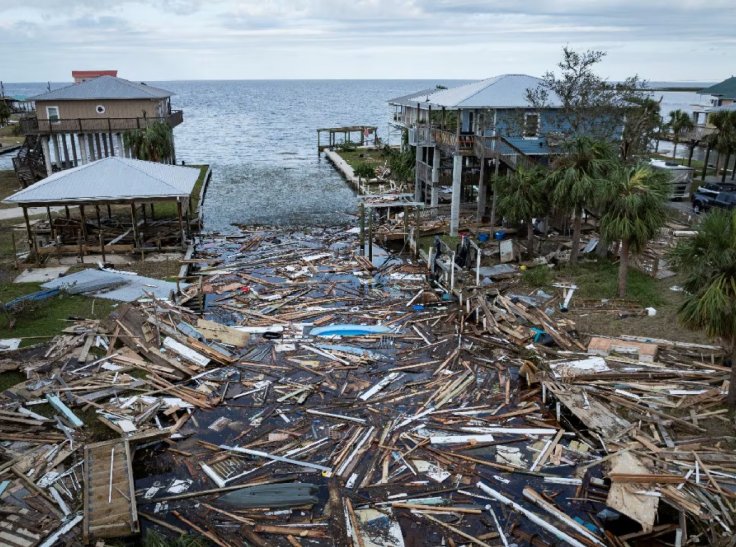Over 1,000 people have gone missing in a North Carolina county ravaged by Hurricane Helene, with the death toll reaching 30, officials said on Sunday. Authorities in Buncombe County reported the alarming figure during an emergency meeting, where they discussed setting up medical shelters and ongoing rescue operations in areas severely impacted by flooding.
A special website has also been launched to help in locating the missing, with officials noting that there have been "over 1,000 missing person reports so far," as mentioned in the live-streamed briefing. Officials hoped that many of the missing are people without power, with ongoing efforts to let their loved ones know they are safe.
Grim Situation

However, Buncombe County, which includes Asheville, has already reported 30 of the 36 confirmed deaths in North Carolina, a number that is likely to increase, Governor Roy Cooper acknowledged.
"We're doing everything we can," said Buncombe County Sheriff Quentin Miller, noting that collapsed roads, damaged infrastructure, and extensive flooding have made it nearly impossible to reach those stranded.
"We know there will be more," he said on Sunday.
Emergency response teams have rescued over 40 people, including a baby, in the Asheville area, thanks to a combination of 911 calls and social media pleas for help, according to North Carolina Adjutant General Todd Hunt.
Essential supplies are being flown into isolated communities, while crews work urgently to reopen roads and reestablish communication networks.
By Sunday afternoon, Hurricane Helene had claimed at least 89 lives and left millions without electricity since it made landfall in Florida on Thursday.
Desperate Pleas from Residents

Katie Pate from Fairfax, Virginia, turned to X for help after losing communication with her parents near Asheville, North Carolina. Fortunately, this story ended on a positive note.
"My dad called to tell me they were getting the generator set up, then after that, he was a ghost," said Pate. "I was seeing just a steady stream of deterioration in western North Carolina, but all I could do was sit and wait."
After 24 hours of no contact, Pate was finally able to reach her parents by phone. She found that the storm had caused widespread power outages across the county, and while some roads were flooded, others were blocked by fallen trees.
Her parents, both 75, packed a chainsaw into their pickup truck and cleared a path to a nearby inn, which was the only spot in town with cell service.
"People don't realize that even if you can get someone on the phone, you still can't get to them. Everywhere is cut off," Pate said. "You have to have a chainsaw to get anywhere. The asphalt in the roads is crumbling. The bridges are collapsing. It's like a horror movie."
In Texas, Jessica Drye Turner pleaded for someone to rescue her relatives trapped on their rooftop in Asheville as floodwaters rose around them. "They're watching 18-wheelers and cars float by," she wrote in an urgent Facebook post on Friday.
However, in a follow-up message shared widely on social media on Saturday, Turner revealed that help arrived too late. Both of her parents, who were in their 70s, and her six-year-old nephew drowned when the roof collapsed.








